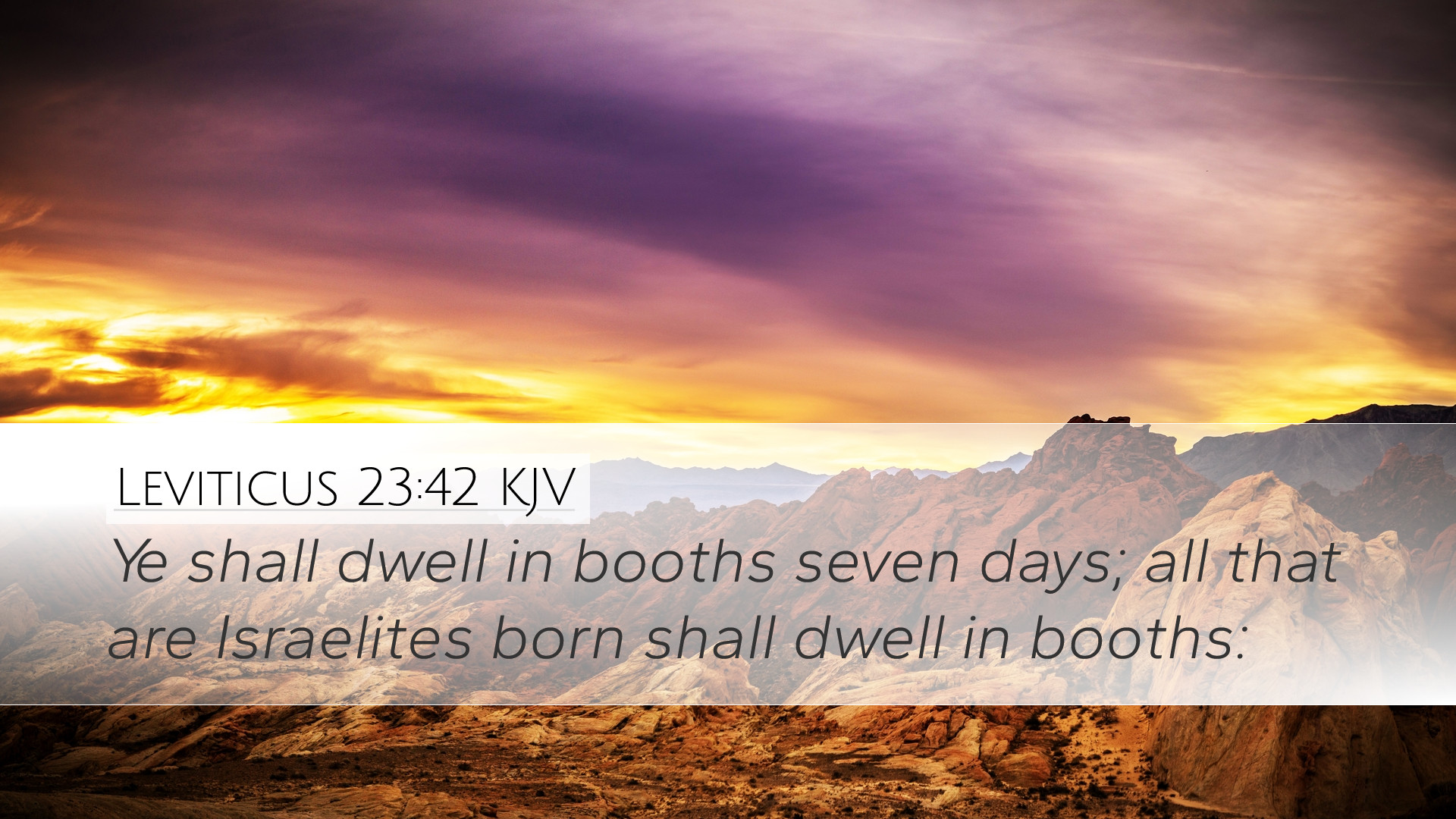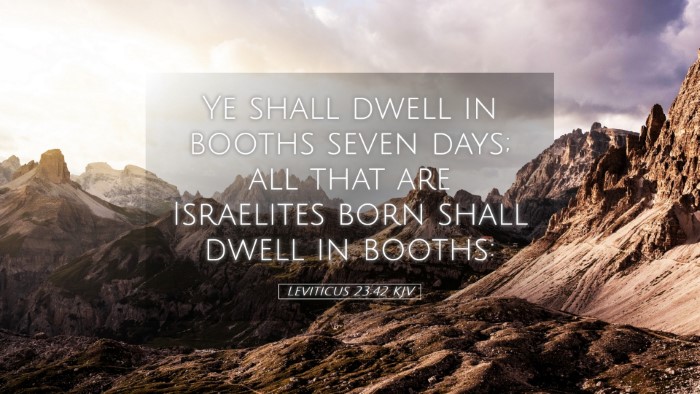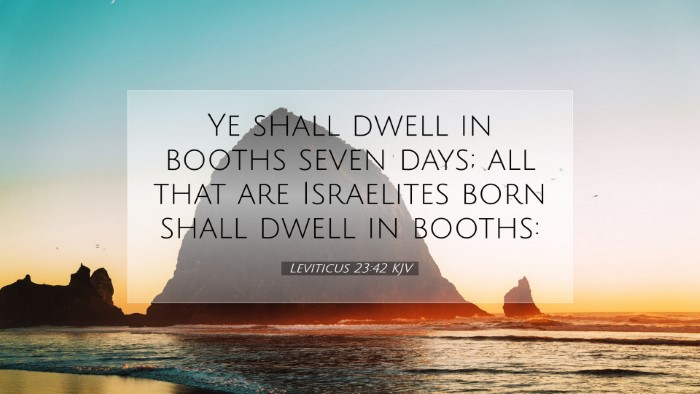Commentary on Leviticus 23:42
Leviticus 23:42 states, "You shall dwell in booths for seven days. All who are native Israelites shall dwell in booths." This verse calls the Israelites to live in booths during the Feast of Tabernacles, or Sukkot, symbolizing their dwelling in temporary shelters during their exodus from Egypt.
Historical Context
The instruction given in Leviticus 23:42 is part of the larger context of the Feasts, which are critical to Israel's religious practices. This particular feast commemorates their journey through the wilderness and highlights the transient nature of life and dependence on God.
Theological Significance
The command to dwell in booths has profound theological implications, showcasing God's provision and protection during Israel's travels. The booths symbolize earthly life’s temporary nature, emphasizing the need for reliance on God.
Insights from Matthew Henry
Matthew Henry observes that the booths serve as a reminder of the Lord’s providence. He emphasizes the importance of remembering from where they came and acknowledging God’s role as protector. Henry notes that dwelling in booths, even for a season, is a practice that cultivates humility and gratitude towards God’s sustaining grace.
Insights from Albert Barnes
Albert Barnes highlights that the command to dwell in booths points to a celebration of the harvest season while simultaneously serving as a remembrance of the Israelites' wandering in the wilderness. He notes that this ritual encourages community gathering and thanksgiving, reinforcing social bonds among the people of Israel. Barnes also emphasizes the inclusion of “all who are native Israelites” as a call for unity in worship and remembrance of their shared history.
Insights from Adam Clarke
Adam Clarke elaborates on the symbolism of the booths, linking them to both the simplicity of life and the fragility of human existence. He contextualizes this command within God’s broader intention of keeping the people mindful of His presence and guidance. Clarke further comments on the practical aspects of building these booths, which fosters a spirit of cooperation and shared remembrance among the Israelites.
Practical Applications
For pastors, students, and theologians, this verse provides valuable lessons on the importance of remembrance in worship.
- Reflection on Transience: Just as the Israelites lived in booths, believers today are encouraged to reflect on the temporary nature of earthly life and to seek a deeper relationship with God.
- Celebration of Community: The feast promotes community and unity, reminding modern believers of their communal responsibilities and the importance of spiritual fellowship.
- Gratitude for Provision: Emphasizing thankfulness for God’s provisions, the command to dwell in booths can inspire contemporary worship practices that incorporate thanksgiving and remembrance.
Conclusion
Leviticus 23:42 is more than a historical directive; it carries deep theological insights that resonate with contemporary believers. The call to dwell in booths inspires both reflection and action, urging God’s people to remember His faithfulness while cultivating a spirit of gratitude and humility.


